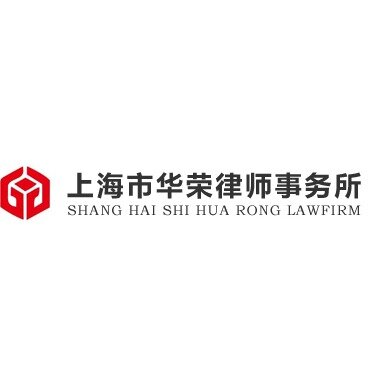Best Immigration Lawyers in China
Share your needs with us, get contacted by law firms.
Free. Takes 2 min.
Or refine your search by selecting a city:
List of the best lawyers in China
China Immigration Legal Questions answered by Lawyers
Browse our 1 legal question about Immigration in China and read the lawyer answers, or ask your own questions for free.
- Article 29 waiver and Judicial Citizenship
- I am looking for a legal representation (not a general consulting service) for a complex Article 29 waiver and Judicial Citizenship case. I am a Quant professional with a Master's degree.
-
Lawyer answer by Kht & Partners
Hello Sir/Madame, The information you gave was too limited to give your detailed professional legal analysis with a clear rounte to reach your target, It's better to send as much background information as possible. We khtpartners are glad to assist...
Read full answer
China Immigration Legal Articles
Browse our 1 legal article about Immigration in China written by expert lawyers.
- China Business Travel: 144-Hour Visa-Free Rule & 2025 Visas
- China in 2025 is more open to foreign business visitors and talent, but most travelers still need a visa or must qualify for specific visa-free or transit schemes. The 144-hour visa-free transit now covers most major coastal hubs (Beijing-Tianjin-Hebei, Shanghai-Yangtze River Delta, Guangdong Greater Bay Area, plus cities like Chengdu,... Read more →
About Immigration Law in China
Immigration law in China encompasses the legal regulations and procedures that govern foreigners entering, residing, and working in the country. The Chinese government has implemented a series of immigration laws aimed at managing the flow of people across its borders, balancing the need for skilled labor with national security and cultural considerations. In recent years, China has streamlined some processes to attract qualified professionals and investors, yet the legal landscape remains intricate, with specific rules varying depending on the purpose and duration of stay.
Why You May Need a Lawyer
Engaging a lawyer specializing in immigration law can be invaluable for several reasons:
- Understanding Complex Regulations: China's immigration rules can be intricate, and a lawyer can help you navigate these effectively.
- Visa Applications: Assistance with preparing and submitting the correct paperwork, ensuring compliance with local laws, and increasing the chance of approval.
- Work Permits: Guidance on securing the required permits to legally work in China, which often involves intricate bureaucratic processes.
- Permanent Residency and Citizenship: Support through the challenging procedures to attain long-term residency or citizenship, including document preparation and submission.
- Legal Issues and Appeals: Representation in legal issues, such as appeals against deportation or assistance with non-compliance penalties.
Local Laws Overview
Immigration in China is primarily governed by the Exit and Entry Administration Law and its supplementary regulations. Key aspects include:
- Visa Categories: China issues several types of visas based on purpose, including study, work, family reunion, and tourism, with stringent requirements for each type.
- Temporary vs. Permanent Residence: Policies for obtaining temporary stay include work visas, while permanent residency is more restricted, generally demanding significant investment or extraordinary contributions.
- Employer Responsibilities: Employers hiring foreign nationals must comply with laws regarding work permits and related documentation.
- Penalties for Non-Compliance: Violations of immigration laws, such as overstaying a visa or unauthorized employment, may result in fines, detention, or deportation.
Frequently Asked Questions
What are the types of Chinese visas available?
China offers tourist visas (L), business visas (M), student visas (X1/X2), work visas (Z), transit visas (G), and family reunion visas (Q1/Q2), among others.
How can I apply for a work visa in China?
To apply for a work visa (Z visa), you need an official job offer from a Chinese employer, a Work Permit issued by Chinese authorities, and an invitation letter. You must apply from outside China.
What is the process to obtain permanent residency in China?
Obtaining a Permanent Residence Permit requires fulfilling specific conditions such as investment in China, marriage to a Chinese citizen, or significant contributions to the country. It involves significant paperwork and strict vetting procedures.
Can I bring my family to China if I am working there?
Yes, you can apply for Dependent Visas (S1 or S2) for your spouse and children, allowing them to live with you in China.
What should I do if my visa expires?
If your visa is about to expire, seek an extension from the local Public Security Bureau before it lapses to avoid penalties. Overstaying can result in fines or deportation.
Do I need a medical examination to apply for a visa?
A medical examination is generally required for work and student visas and should be done at an authorized health institution in China.
How long does it take to process a visa application?
The processing time can vary but generally takes 4 to 10 working days. It’s advisable to apply well in advance of your planned travel date.
Are there any quotas on work visas for foreigners?
While there is no explicit cap, the issuance of work visas is subject to governmental regulations and the labor market's demand, particularly favoring positions requiring specialized skills.
What documents are required for a student visa?
Student visa applications require an acceptance letter from a Chinese educational institution, a valid passport, and a completed visa application form, among other documents.
Can I convert my tourist visa into a work visa in China?
Generally, you must exit China and apply for a work visa from abroad. Direct conversion of a tourist visa to a work visa in China is not permitted.
Additional Resources
For further assistance and resources on immigration in China, consider reaching out to:
- Chinese Embassies and Consulates: They provide guidance on visa applications and entry requirements.
- Public Security Bureau (PSB): Local PSB offices handle visa extensions, renewals, and other immigration matters.
- Ministry of Public Security: Oversees the entry-exit administration and can provide legal information.
- State Administration of Foreign Experts Affairs (SAFEA): Offers information on the employment of foreign nationals.
- Legal Aid Centers: These offer free or low-cost legal assistance, particularly helpful if you face legal issues.
Next Steps
If you require legal assistance with immigration matters in China, consider the following steps:
- Consult a Specialist: Seek out legal professionals who specialize in Chinese immigration law for tailored advice.
- Prepare Documentation: Gather all necessary paperwork, such as passports, job contracts, and previous visa information, to streamline the consultation process.
- Schedule a Consultation: Arrange a meeting with a lawyer to discuss your case and explore your options.
- Utilize Online Portals: Many law firms offer initial consultations online, which could be convenient if you are currently outside China.
- Follow Up: After receiving initial advice, follow up diligently with any legal instructions or additional documentation requests from your lawyer or relevant authorities.
Lawzana helps you find the best lawyers and law firms in China through a curated and pre-screened list of qualified legal professionals. Our platform offers rankings and detailed profiles of attorneys and law firms, allowing you to compare based on practice areas, including Immigration, experience, and client feedback.
Each profile includes a description of the firm's areas of practice, client reviews, team members and partners, year of establishment, spoken languages, office locations, contact information, social media presence, and any published articles or resources. Most firms on our platform speak English and are experienced in both local and international legal matters.
Get a quote from top-rated law firms in China — quickly, securely, and without unnecessary hassle.
Disclaimer:
The information provided on this page is for general informational purposes only and does not constitute legal advice. While we strive to ensure the accuracy and relevance of the content, legal information may change over time, and interpretations of the law can vary. You should always consult with a qualified legal professional for advice specific to your situation.
We disclaim all liability for actions taken or not taken based on the content of this page. If you believe any information is incorrect or outdated, please contact us, and we will review and update it where appropriate.
Browse immigration law firms by service in China
China Attorneys in related practice areas.
Browse immigration law firms by city in China
Refine your search by selecting a city.












